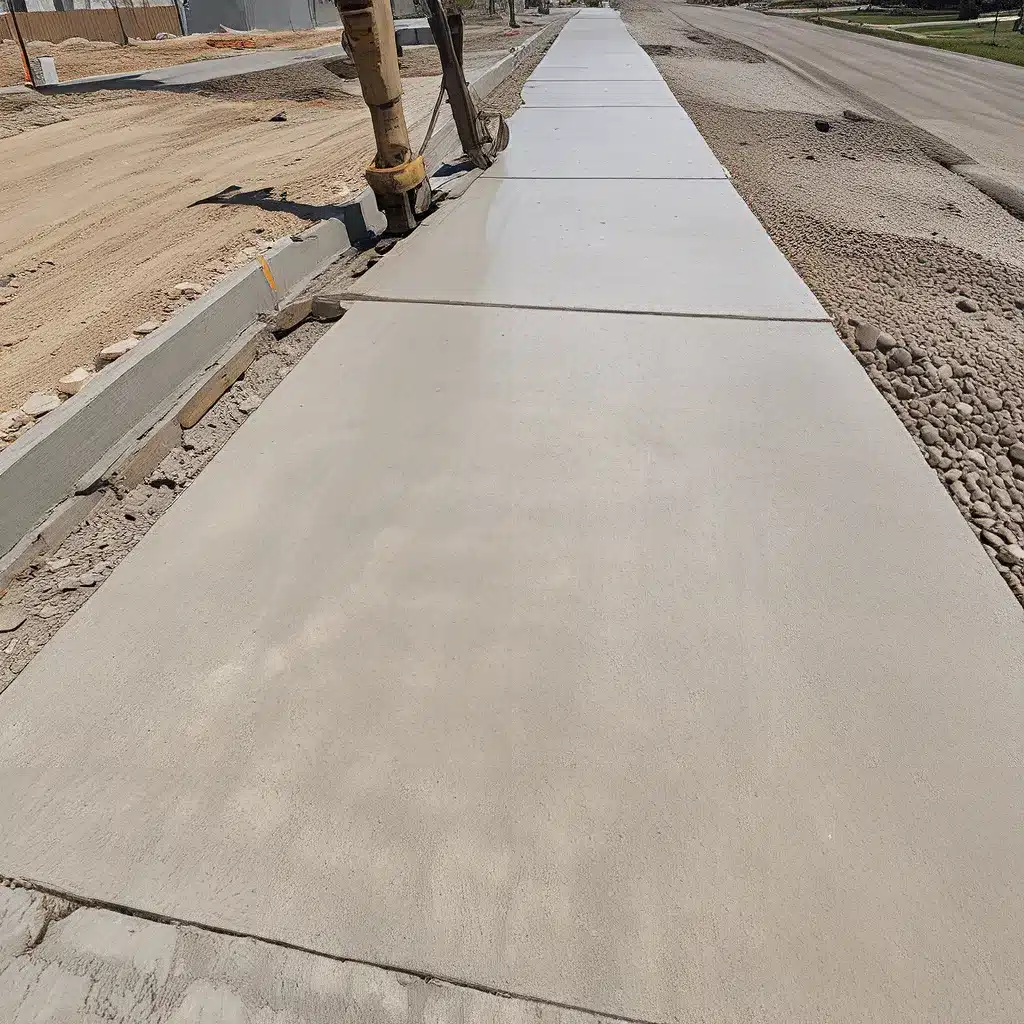
As a homeowner or business owner in Kansas City, navigating the permitting process for concrete projects can seem daunting. Whether you’re planning a new driveway, a patio, or a commercial foundation, understanding the local regulations and requirements is crucial to ensure a smooth and successful project. In this comprehensive guide, we’ll shed light on the permitting process, highlight the importance of ground-penetrating radar (GPR) technology, and provide expert tips to help you navigate the complexities of concrete work in the Kansas City area.
Understanding the Permitting Process
In Kansas City, building permits are required for a variety of concrete-related projects, including the installation, repair, or replacement of driveways, sidewalks, patios, slabs, and even footings and foundations. The permitting process is designed to ensure that all construction work meets the International Building Code, the International Residential Code, and the International Energy Conservation Code – standards enforced by the local building inspectors.
To begin the permitting process, you’ll need to create a website account with the Kansas City government and manage your notification subscriptions to stay up-to-date on any changes or requirements. It’s crucial to note that as of July 6, 2023, the permit application fee of $120 is non-refundable. If you’re unsure about the correct permit type for your project, it’s best to contact the office at 208-446-1040 for clarification before starting the application.
One important change to be aware of is that as of April 29, 2024, the Kansas City Building Division is ending the cold weather concrete guidelines for footing, stem wall, and slab inspections. This means that you’ll need to plan your concrete work accordingly, as the inspectors’ cell phones no longer accept text messages or photos. Instead, you’ll be required to upload any requested documents or photos to the permit record on iMS.
The Importance of Ground-Penetrating Radar (GPR)
Before embarking on any concrete project, it’s essential to understand the underground utilities and infrastructure that may be present at your site. This is where ground-penetrating radar (GPR) technology comes into play. GPR is a non-invasive tool that allows construction professionals to locate and map underground utilities, assess the condition of bridges and roads, and even aid in environmental assessments.
At KC Coring & Cutting Construction Inc., a leading concrete contractor in the Kansas City area, the team has leveraged GPR technology to ensure safe and efficient operations. By using this technology, they can avoid unexpected obstacles when cutting or drilling into concrete, ultimately saving time and reducing the risk of damaging underground utilities.
The cost of GPR services can vary depending on the scope and complexity of the project, but the benefits often outweigh the investment. According to the experts at KC Coring & Cutting Construction Inc., Kansas City clients can expect the cost to be aligned with the efficiency and safety benefits the technology brings to their projects. While it may represent an initial outlay, the cost savings in avoiding utility repairs or project delays are significant.
Tips for a Successful Concrete Project
With the permitting process and the importance of GPR technology in mind, here are some expert tips to help you navigate your concrete project in Kansas City:
-
Plan Ahead: Familiarize yourself with the permitting requirements and be prepared to submit all necessary documentation when applying. Allocate enough time for the permitting process, as it can take several weeks to obtain the necessary approvals.
-
Leverage GPR Technology: Invest in GPR services to locate and map underground utilities before starting any excavation or drilling work. This will help you avoid costly and potentially dangerous incidents, ensuring the safety and efficiency of your project.
-
Understand Local Regulations: Stay up-to-date with any changes to the building codes or concrete guidelines in Kansas City, as these can impact your project requirements and timelines. Regularly check the Kansas City government website for the latest updates.
-
Choose a Reputable Contractor: When selecting a concrete contractor, look for a company with a proven track record in the Kansas City area. Verify their experience with GPR technology and ensure they are familiar with the local permitting process.
-
Communicate Openly: Maintain open communication with your contractor, the building inspectors, and any other relevant stakeholders throughout the project. This will help identify and address any issues early on, ensuring a smooth and efficient process.
By following these tips and understanding the permitting process and the role of GPR technology, you’ll be well on your way to a successful concrete project in Kansas City. Remember, with the right knowledge and the support of experienced professionals, you can navigate the complexities and ensure the long-term durability and quality of your concrete investments.
For all your concrete needs in the Kansas City area, consider visiting the Concrete Contractor Kansas City website to explore their comprehensive services and connect with trusted local experts.

